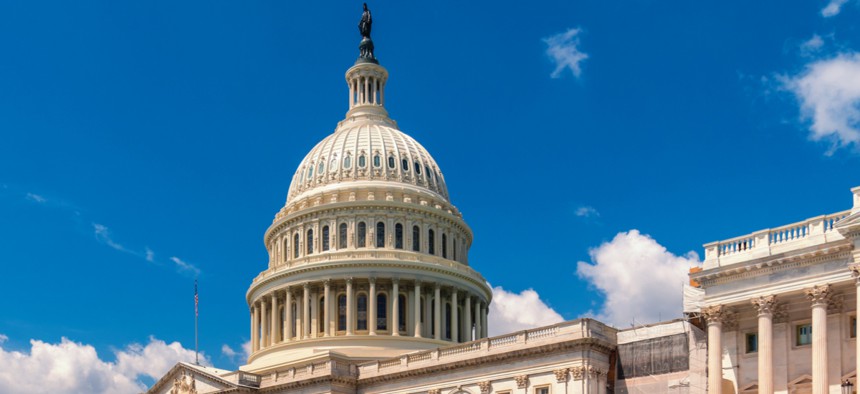Congress brought this on itself. Long ago, it could have required the president to meet certain procedural or substantive requirements prior to unlocking this broad national-emergency authority. As I argue in a recently published paper, procedural constraints can come in many forms. Congress could require a president to consult with Congress with a proposal to proclaim a national emergency, and require congressional approval of the emergency. It could also require the president to include a justification of the circumstances that require the proclamation. Or Congress could require the submission of a complete record of the factual evidence that the proposed national emergency is based on. It could require documentation of the time-sensitive nature of the action, accompanied by documentation explaining why there is insufficient time for Congress to address the issue through legislation. Or Congress could provide for automatic termination of such emergencies after short periods of time, as opposed to defaulting to perpetual emergencies. These commonsense measures could go a long way in ensuring that presidents do not abuse this delegated authority.

Michael Urmann/Shutterstock.com
Analysis: Blame Congress for the National Emergency
Long ago, it could have required the president to meet certain requirements prior to unlocking this broad authority.
Who empowered President Donald Trump to declare that “a national emergency exists at the southern border of the United States”? Congress. Congress authorized such sweeping authority. Congress failed to impose meaningful constraints or define “national emergency.” Congress is failing to maintain accountability by abiding by its six-month mandatory reviews of such emergencies. And it is Congress that has the power to terminate Trump’s proclamation by a joint resolution of both chambers of Congress. According to recent reports, the House is going to introduce a joint resolution to do just that on Friday. The Senate would need to sign on. But since the president can veto this joint resolution, both chambers will need a two-thirds majority—an unlikely scenario in this political climate.
Such process requirements are nothing new in the law. Congress, for example, mandates agencies to publish all proposed rule-makings and seek public comment prior to finalizing their rules. But Congress seems reticent to impose meaningful hurdles on the president. And the application of these principles can be complicated by a president’s ability to claim confidentiality on the basis of national security.
In fact, although the media have focused of late on emergency powers, the same problems of vagueness, unaccountability, and non-transparency apply with equal force to the more than 2,000 references to “national security” that plague our laws. The statutory powers provided to a president to address “national security” threats are varied, extensive, and under-explored. Many of these provisions lie dormant, lulling our democracy into complacency. Yet a significant number of such powers are delegated to the president without any discernible limits.
One way to address the need for balance between secrecy and accountability would be to recognize that not all national-security threats are created equal. Congress could adopt a distinction between acute and chronic national-security threats and tailor the procedural constraints accordingly. Few would want to deny a president the ability to act with haste when an acute and unpredictable threat occurs. But a nimble presidency is not as necessary if the emergency is chronic and foreseen. By acknowledging a sliding scale of emergencies, Congress could adjust the degree of constraints in proportion to the imminence of the threat.
Instead of imposing some meaningful preconditions to a president’s exercise of this authority, Congress in its National Emergencies Act conditioned a president’s proclamation on only one requirement: that the president specify “the provisions of law under which he proposes that he, or other officers will act” (and that such proclamation be published in the Federal Register and transmitted to Congress). And even though the NEA requires a mandatory congressional review of the continuing viability of such emergencies every six months, as the Brennan Center has noted, there is no evidence of Congress ever conducting these reviews for any of the 58 national emergencies that have been declared prior to this proclamation.
Furthermore, Congress has imposed significant barriers to termination of such orders, as demonstrated by the joint-resolution procedure discussed above. It is therefore extremely easy for a president to declare an emergency, but extremely difficult for Congress to terminate one. Such asymmetry is particularly vexing given that the NEA was passed to end actually existing emergencies, not begin manufactured ones.
By failing to require a more robust showing in the NEA prior to a president declaring an emergency, Congress also limits the ability of the courts to adequately review and respond to such presidential actions. Although numerous lawsuits have already been filed against Trump’s proclamation, plaintiffs will be hamstrung by Congress’s failure to include prerequisites in the NEA. Some of these plaintiffs may nevertheless succeed in demonstrating that Trump exceeded the scope of his statutory powers. But historically, courts have shown themselves reluctant to inject themselves into national-security controversies where Congress has not articulated standards by which to judge presidential compliance with the law.
This is not a partisan matter: It is incumbent on the legislative branch to ensure that the executive is held to the same standards of accountability and transparency as the rest of the government. Moving forward, Congress may want to reevaluate the numerous statutes that provide a president with unbridled power and think twice before authorizing future powers that are not tethered to any sort of justification or confirmation by another branch. Disciplining the fact finder, facilitating transparency, and providing accountability can enhance the legitimacy of both the presidency and presidential decisions in a way that protects both the rule of law and our nation.






